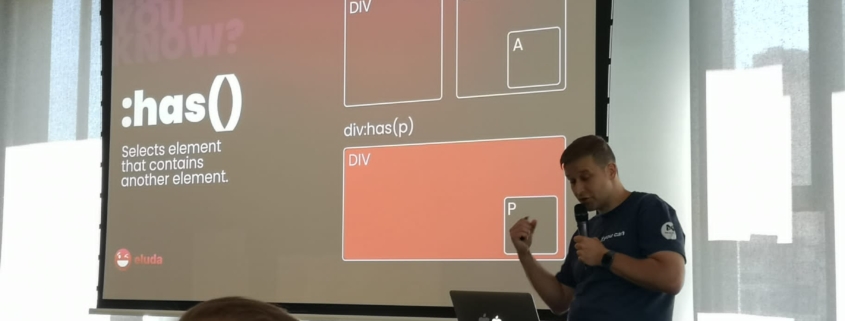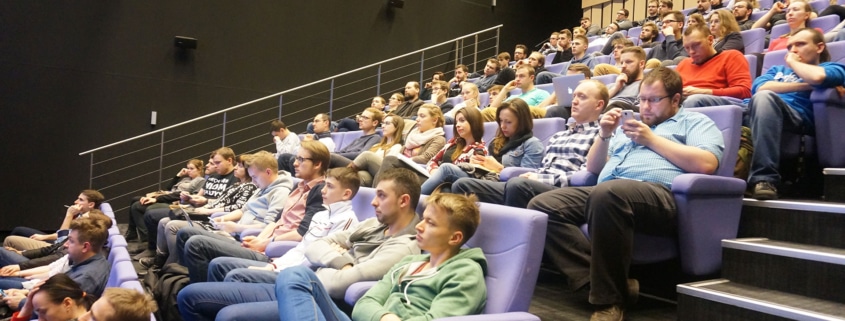WordPress is one of the most popular content management systems (CMS) in the world. It was created in 2003 and has been growing and evolving ever since. One of the key aspects of using WordPress is to update the software regularly. In this article, I’ll discuss why it’s worth keeping WordPress up to date and examples of situations where a lack of updates has caused problems with a site’s performance.
It is worth keeping WordPress up to date as new software versions include bug fixes, performance improvements, new features and security tools. The WordPress software is developed by a large community and each update is tested and refined before release. This means that each new version of WordPress is more powerful, secure and easier to use than the previous version.
The first and most important reason to update WordPress is site security. New software updates include fixes related to security vulnerabilities that were discovered in previous versions. If you don’t keep WordPress up to date, your site could become vulnerable to hackers and malware attacks. In some cases, an out-of-date version of WordPress can lead to your site being hacked, data stolen and loss of control.
The second reason to keep WordPress up to date is to improve site performance. New versions of WordPress software are optimised for speed and performance. They also introduce new features and improvements that can speed up your site. A WordPress update can also improve the loading speed of your site, which is important for SEO and user satisfaction.
The third reason to update WordPress is to access new features and tools. New WordPress updates often introduce new features and enhancements that can help you better serve your site, add new elements, implement a better marketing strategy and much more.
Unfortunately, many people skip WordPress updates because they consider them cumbersome or risky. Unfortunately, this approach is wrong. Failing to update can lead to serious problems with your site’s performance.
Failure to update WordPress can lead to serious problems with your site’s performance. Examples of such problems include:
Loss of control of the site – if you do not keep WordPress up to date, your site can become vulnerable to hackers and malware attacks. In some cases, an out-of-date version of WordPress can lead to your site being hacked, data stolen and loss of control.
Site performance issues – an outdated version of WordPress can lead to site performance issues. This can manifest itself in slower page loading, crashes, errors and other site functionality issues.
Compatibility issues – if you do not keep WordPress up to date, your site may become incompatible with new plugins, templates and other tools, which can lead to site functionality issues.
Security risks – an out-of-date version of WordPress can lead to serious security issues for your site. These can include hacker attacks, viruses, malware and other threats that can lead to loss of data and control of the site.
Therefore, to avoid these problems, it is important to update WordPress regularly. The process of updating WordPress is relatively simple and usually only takes a few minutes. To update WordPress, go to the ‘Updates’ tab in the WordPress admin panel and click ‘Update Now’. You can also install automatic update plugins, which will automatically update WordPress to the latest version.
Plugin updates are just as significant an aspect of maintaining the security and performance of your website as WordPress updates. Plugins add functionality to your site but can also lead to concerns if they are not updated regularly.
Failure to keep plugins up to date can lead to security issues and performance problems with your site. Out-of-date plugins can become vulnerable to hackers and malware attacks, leading to data theft and other serious security issues. In addition, plugins that are not kept up to date can become incompatible with new versions of WordPress, which can lead to problems with site performance.
To avoid these problems, it is important to update plugins regularly. The process for updating plugins is similar to updating WordPress. In your WordPress admin panel, under the ‘Plugins’ tab, you will see notifications of available plugin updates. Simply click “Update now” next to each plugin you wish to update.
Plugin updates are just as important an aspect of maintaining the security and performance of your website as WordPress updates. Plugins add functionality to your site but can also lead to problems if they are not updated regularly.
Failure to keep plugins up to date can lead to security issues as well as performance problems with your site. Out-of-date plugins can become vulnerable to hackers and malware attacks, which can lead to data theft and other serious security issues. In addition, plugins that are not kept up to date can become incompatible with new versions of WordPress, which can lead to problems with site performance.
To avoid these issues, it is important to update plugins regularly. The process for updating plugins is similar to updating WordPress. In your WordPress admin panel, under the ‘Plugins’ tab, you will see notifications of available plugin updates. Simply click “Update now” next to each plugin you wish to update.
However, remember that you should not always update plugins as soon as a new version is released is worth remembering. In some cases, the new version of a plugin may be incompatible with your version of WordPress or with other plugins, which can lead to problems with the operation of your site. Therefore, before updating a plugin, it is worth checking that it is compatible with your WordPress version and other plugins.
Before you update WordPress or plugins, it is a good idea to make a backup of your website. Taking a backup is important because if something goes wrong during the upgrade, you can restore your site to its previous state.
For WordPress, several plugins allow you to make easy backups. You can use plugins such as UpdraftPlus, BackWPup, or All-in-One WP Migration. You can also use the tools available in your hosting’s admin panel, which allow for easy backups.
It’s important to back up your website regularly, ideally before every WordPress or plugin update. In the event of a problem during an update, you will have access to a backup to restore your site to its previous state.
It’s worth remembering that it’s not just updates that can lead to problems with your site. Therefore, it’s worth keeping your website secure and making regular backups to ensure that, in the event of problems, you can get your site back up and running in no time.
In summary, it is worth updating WordPress and plugins regularly for the sake of security, performance and access to new features and tools. An outdated version of WordPress can lead to serious performance issues that can negatively affect your site’s image and effectiveness. Therefore, take a few minutes to update WordPress to minimise the risk of site performance issues.










 WordCamp Gliwice 2023 is the biggest conference of WordPress enthusiasts in Poland, which will take place on 12-14 May, 2023. It is a unique opportunity to meet other WordPress users, developers, designers, and entrepreneurs. At the conference, you can listen to interesting lectures, exchange experiences and make new contacts.
WordCamp Gliwice 2023 is the biggest conference of WordPress enthusiasts in Poland, which will take place on 12-14 May, 2023. It is a unique opportunity to meet other WordPress users, developers, designers, and entrepreneurs. At the conference, you can listen to interesting lectures, exchange experiences and make new contacts.








